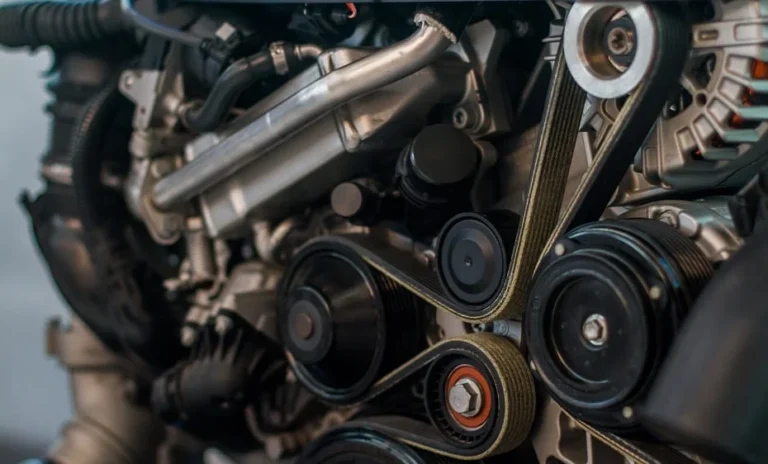2013 ford fusion ecoboost gas type
The 2013 Ford Fusion EcoBoost is a popular car choice, known for its mix of power and fuel efficiency. To keep the engine running smoothly and maintain its performance, it’s important to use the correct gas type. This model is made to work best with regular unleaded gasoline with an octane rating of 87. While premium gas is optional, it is not necessary for most driving conditions. Knowing the right fuel helps you save money and protect your vehicle for the long term.
The 2013 Ford Fusion EcoBoost uses regular unleaded gasoline with an octane rating of 87. While premium gas (91 or higher) is optional and may improve performance slightly in some cases, it is not required. Always check the owner’s manual for fuel recommendations to protect the engine and ensure smooth performance.
We shall talk about the “2013 Ford Fusion Ecoboost Gas Type” in this article.
Table of Contents
Overview of the Ford Fusion EcoBoost 2013
The 2013 Ford Fusion EcoBoost is a midsize sedan combining stylish design, fuel efficiency, and strong performance. It features EcoBoost engines with turbocharging and direct injection, offering a good balance of power and fuel savings. Available in 1.6L and 2.0L options, it is designed for drivers who want both comfort and reliability.
Importance of knowing the correct fuel type
Knowing the correct fuel type is essential to keep your car’s engine healthy and running smoothly. Using the wrong fuel can reduce performance, lower fuel efficiency, and even damage the engine over time. It also helps you save money by avoiding repairs and ensures you get the best driving experience from your vehicle.
Understanding the Ford Fusion EcoBoost Engine

What is EcoBoost technology?
EcoBoost technology is Ford’s engine design that combines turbocharging and direct fuel injection. It boosts power and torque while using less fuel compared to traditional engines. EcoBoost engines are made to improve fuel efficiency and reduce emissions without sacrificing performance, making them a smart choice for drivers looking for power and savings.
Also read :Inserted USB device is not responding ford: Comprehensive Guide 2k24
Key features of the 2013 Ford Fusion EcoBoost
The 2013 Ford Fusion EcoBoost offers key features like turbocharged EcoBoost engines, available in 1.6L and 2.0L options, for a mix of power and fuel efficiency. It includes advanced technologies like direct fuel injection, stylish design, and comfortable interiors. With great fuel economy and responsive performance, it’s a reliable and modern choice for everyday driving.
Recommended Gas Type for the 2013 Ford Fusion EcoBoost
Manufacturer’s guidelines
Manufacturer’s guidelines provide important instructions on how to maintain and operate your car. For the 2013 Ford Fusion EcoBoost, Ford recommends using regular unleaded gasoline with an octane rating of 87. Following these guidelines ensures the engine runs smoothly, improves fuel efficiency, and helps avoid potential damage. For precise and detailed information, consult the owner’s handbook at all times.
Difference between regular and premium gas
Regular gas is cheaper and suitable for most vehicles, while premium gas has a higher octane rating, reducing engine knocking and improving performance in some cars. However, using premium gas in a vehicle not designed for it offers minimal benefits. Check your car’s manual to determine which is right for your vehicle.
Performance with Different Gas Types
Using regular gas
Using regular gas in a 2013 Ford Fusion EcoBoost is fine for everyday driving. It meets the engine’s needs and keeps costs down. Premium gas isn’t required unless your manual specifies otherwise. Regular gas ensures smooth performance and helps maintain the engine’s health without extra expense.
Benefits of premium gas
Premium gas has a higher octane rating, which can improve engine performance, reduce knocking, and provide smoother acceleration. It’s especially beneficial for vehicles designed to take advantage of its properties. However, for many cars, using regular gas works just as well without additional cost.
Fuel Economy of the 2013 Ford Fusion EcoBoost

MPG ratings
MPG ratings indicate how far a vehicle can travel on a gallon of gas. For the 2013 Ford Fusion EcoBoost, the 1.6L engine averages around 25 MPG in the city and 37 MPG on the highway, while the 2.0L engine averages 22 MPG city and 33 MPG highway. These ratings help drivers gauge fuel efficiency.
Also read: 2016 Ford Fusion Phone Button Not Working .
Factors influencing fuel efficiency
Fuel efficiency can be affected by a number of factors, including road conditions, vehicle maintenance, and driving behavior. Driving at consistent speeds, keeping tires properly inflated, and regular maintenance like oil changes and air filter replacements help optimize fuel economy. These factors contribute to how far your car can go on a tank of gas.
Why Using the Correct Fuel Matters
Engine health
The state of the engine’s constituent parts is referred to as engine health. Regular maintenance, like using the right fuel and keeping the engine clean, helps prevent wear and tear, ensuring the engine runs smoothly and efficiently over time. Poor engine health can lead to performance issues and higher repair costs.
Impact on performance and warranty
The performance of a product can be affected by how it is used and maintained. For example, improper care might reduce efficiency. Warranties typically cover defects, but using the product incorrectly or altering it could void the warranty. It’s important to follow guidelines for both optimal performance and to keep the warranty valid.
How to Check Your Car’s Fuel Requirements
Owner’s manual insights
The owner’s manual provides important information about how to use and maintain a product. It includes safety instructions, setup guidelines, and tips for care. Reading the manual helps ensure the product works properly and lasts longer. It also explains warranty details and troubleshooting steps if issues arise, making it an essential guide for owners.
Fuel cap indicators
Fuel cap indicators are signs or lights that show the status of your vehicle’s fuel cap. They alert you if the cap is not properly closed or if there’s an issue with it. A loose or damaged fuel cap can cause fuel leaks, affect performance, or trigger warning lights on your dashboard, so it’s important to check it regularly.
EcoBoost and Flex-Fuel Considerations

Is the 2013 Ford Fusion EcoBoost a flex-fuel vehicle?
The 2013 Ford Fusion EcoBoost is not a flex-fuel vehicle. It uses regular gasoline and is designed for better fuel efficiency. Flex-fuel vehicles can run on ethanol blends, but the EcoBoost engine in this model does not support that feature. It focuses on using gasoline for optimal performance and economy.
Key differences
Key differences refer to the distinct qualities or features that set things apart from each other. These can include aspects such as size, shape, function, or purpose. By understanding these differences, it becomes easier to compare items or ideas and identify their unique characteristics, which can help in making better decisions or forming clear opinions.
Common Misconceptions About Gas Types
Premium gas myths
There are common myths about premium gas. Some think it improves performance or fuel efficiency, but it’s not necessarily true for all vehicles. Premium gas is usually more expensive but doesn’t always offer benefits for cars that don’t require it. Always check your vehicle’s manual for the right type of fuel.
Cost versus benefit analysis
A cost vs benefit analysis compares the expenses and benefits of a choice. It helps identify whether the benefits gained outweigh the expenses involved, guiding more informed choices in both personal finance and business decisions.
Tips for Maximizing Performance with the Right Gas
Driving habits
Driving habits refer to the way you drive, including speed, braking, and turning. Good habits can improve safety and fuel efficiency, while bad habits can lead to accidents and higher fuel costs. Making mindful choices can lead to better driving outcomes.
Maintenance routines
Maintenance routines involve regular checks and tasks like oil changes, tire rotations, and brake inspections to keep a vehicle running smoothly. Consistent maintenance helps prevent costly repairs and ensures safety.
Environmental Impact of Fuel Choices

EcoBoost’s role in reducing emissions
EcoBoost technology helps reduce vehicle emissions by improving fuel efficiency. It uses smaller engines with turbocharging and direct fuel injection, which burn fuel more efficiently. This leads to lower carbon dioxide (CO2) emissions and better fuel economy, supporting cleaner air.
Also read : 2012 Ford Fusion Heated Seat Not Working
Gas type implications
Gas type implications refer to how different fuels impact vehicle performance and the environment. Using cleaner fuels, like natural gas or ethanol, can reduce harmful emissions. In contrast, traditional gasoline or diesel can produce higher levels of pollution and greenhouse gases.
Troubleshooting Issues Related to Incorrect Fuel Use
Symptoms of using the wrong gas
Using the wrong gas in a vehicle can cause engine problems like knocking, poor performance, or stalling. It may also lead to increased fuel consumption, damaged engine parts, or difficulty starting the vehicle, affecting its overall efficiency and lifespan.
Steps to resolve fuel-related problems
To fix fuel-related problems, first, check the fuel type and ensure it matches your vehicle’s requirements. If necessary, clean or replace the gasoline filter.If the problem persists, inspect the fuel pump and injectors, or consult a mechanic for repairs.
Conclusion
In conclusion, using the correct fuel type for your 2013 Ford Fusion EcoBoost is essential for optimal performance and engine health. Regular unleaded gasoline with an octane rating of 87 is the best choice for most driving conditions. While premium gas can be used, it is not necessary. Always follow the manufacturer’s recommendations to ensure your vehicle runs smoothly, saves fuel, and lasts longer. Regular maintenance and the right fuel will help you avoid costly repairs and maintain efficiency.
FAQs
What type of fuel should I use for the 2013 Ford Fusion EcoBoost?
For the 2013 Ford Fusion EcoBoost, use regular unleaded gasoline with an octane rating of 87. Premium gas is optional but not necessary for normal driving conditions and performance.
Can I use premium gas in my 2013 Ford Fusion EcoBoost?
Yes, you can use premium gas in your 2013 Ford Fusion EcoBoost, but it’s not necessary. Regular unleaded gasoline with an octane rating of 87 is sufficient for most driving conditions.
Is the 2013 Ford Fusion EcoBoost a flex-fuel vehicle?
No, the 2013 Ford Fusion EcoBoost is not a flex-fuel vehicle. It is designed to run on regular unleaded gasoline and does not support ethanol blends or flex-fuel options.
What should I do if I accidentally use the wrong gas in my Ford Fusion EcoBoost?
If you use the wrong gas in your Ford Fusion EcoBoost, check the fuel type, and if needed, replace the fuel filter. If problems persist, consult a mechanic for further inspection and repairs.





